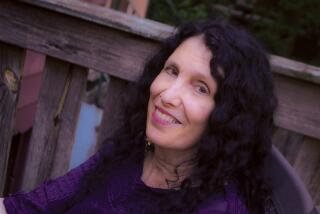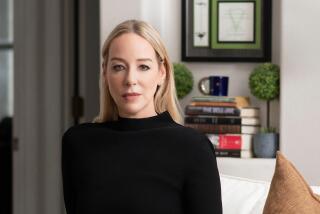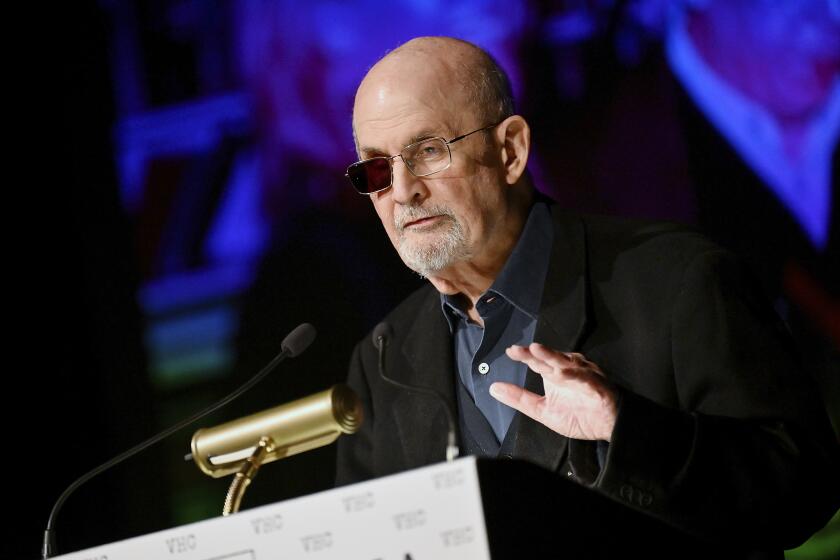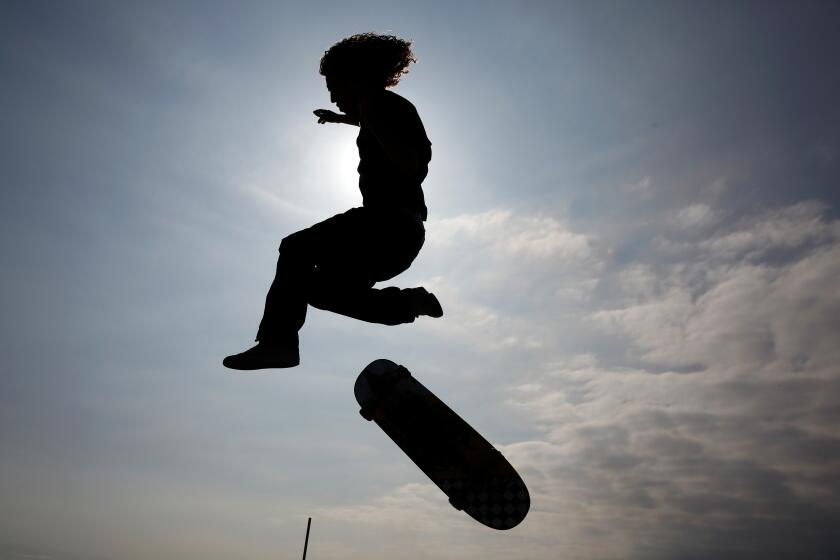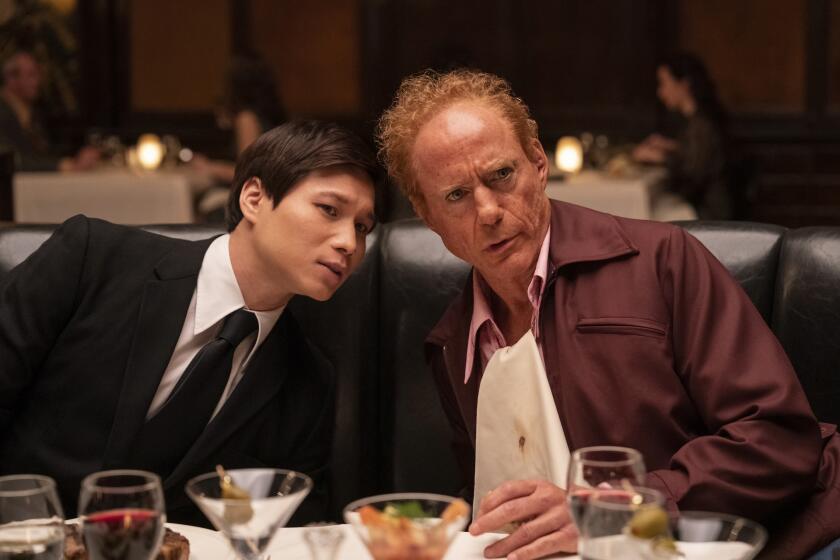She thought her past was painful; then Stephanie Danler wrote about it
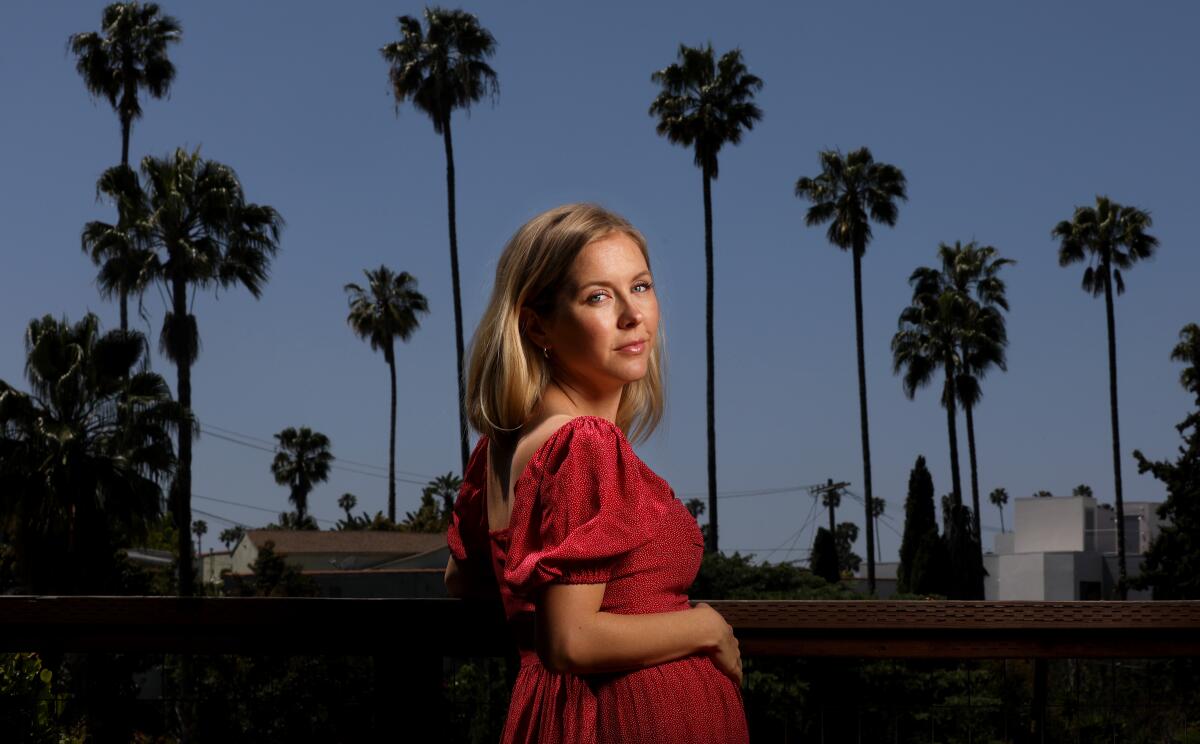
Stephanie Danler has been harboring secrets for a long time, but they may not be the ones you’d imagine.
In 2016, when Danler published “Sweetbitter,” a debut novel capturing New York City through the eyes of a young woman hungry for experience and belonging, many readers assumed it was autobiographical. Danler’s life story coincided with that of her sensuous, self-destructive heroine, Tess, in one enticing particular: Both worked in a landmark Manhattan restaurant described in meticulous detail (Danler drew heavily on the Union Square Cafe). The author pointed out that she was not Tess, but few believed her. Surely it was too passionately lived in to be fiction?
At the time, Danler says, she was “having a little chuckle to myself.” In public she was diplomatic; in her head, she answered, “You don’t even know what autobiography is.”
On her book tour for “Sweetbitter,” encountering ample praise (Gabrielle Hamilton called it “the ‘Kitchen Confidential’ of our time”) and envy (a six-figure, two-book deal for a young blonde white woman; say no more), Danler was working on a real autobiography. Published next week, the slim and elliptical “Stray” is a darker affair. Centered on her childhood in and around Long Beach, the time-skipping memoir is shaped by two addicts: Danler’s mother, an alcoholic, with whom she had a contentious and at times physically violent relationship, and her charismatic father, whose meth addiction she wrote about for Vogue in 2016, kicking open the door to her past.
When we talk in early April, Danler, like all of us, is gripped by more immediate troubles. We considered taking a physically distant walk, but since Danler is pregnant with her second child, we’ve settled for Zoom. From the bedroom of the Silver Lake apartment she shares with her husband, Matt, and their 15-month-old son, Julian, she calls “Stray” “a love story” — something she realized only once she began: “I was actually going to have to write about how much I love my parents.”
Just as “Sweetbitter” was published, Danler returned to California to write her second book for Knopf, which she hoped would be another novel. Then the Santa Anas stirred, whipping up palm fronds and sunbaked dust. She calls it her “Proustian madeleine moment.”
“I couldn’t stop writing about childhood,” she says. For a while she resisted; then she composed what she thought were essays — trying on, and then shrugging off, all the labels used for narrative nonfiction. She shied away from calling it a memoir, because she didn’t want to manufacture a “journey” ending in catharsis — not for a life still very much in progress. Now, she says, “I don’t care anymore. Call it whatever.”
It wasn’t easy to drop the cover of fiction. “Children of alcoholics tend to be really excellent secret keepers,” says Danler. “I was so scared. But I felt that if you’re going to write that someone hit you, someone overdosed or behaved in a frightful, hurtful way, then I owed it to my readers and my parents that it be true, that it not be an emotional manipulation.”
A core theme in “Stray” is the entanglement of love and disappointment. The narrator, as an adult, tries to take her recalcitrant mother to a doctor’s appointment. Nancy, still heavily drinking five years after she suffered a brain aneurysm, drives Danler to tears: “It’s the resigned, accidental crying of a child who knows no one is coming. I don’t look at my mother. I try, I really do, to keep myself tiny, silent and numb. But I feel it coming and then it has arrived, my hurt; it is massive, I can’t see beyond it.”
This is a starkly different Danler than the one who toured with “Sweetbitter.” That toast-of-the-town young novelist was well-studied in “this performance of the upbeat, optimistic, ambitious young woman.” In private, puzzling out a dark memoir freed her from the pressures of being the publishing equivalent of a wide-eyed ingenue.
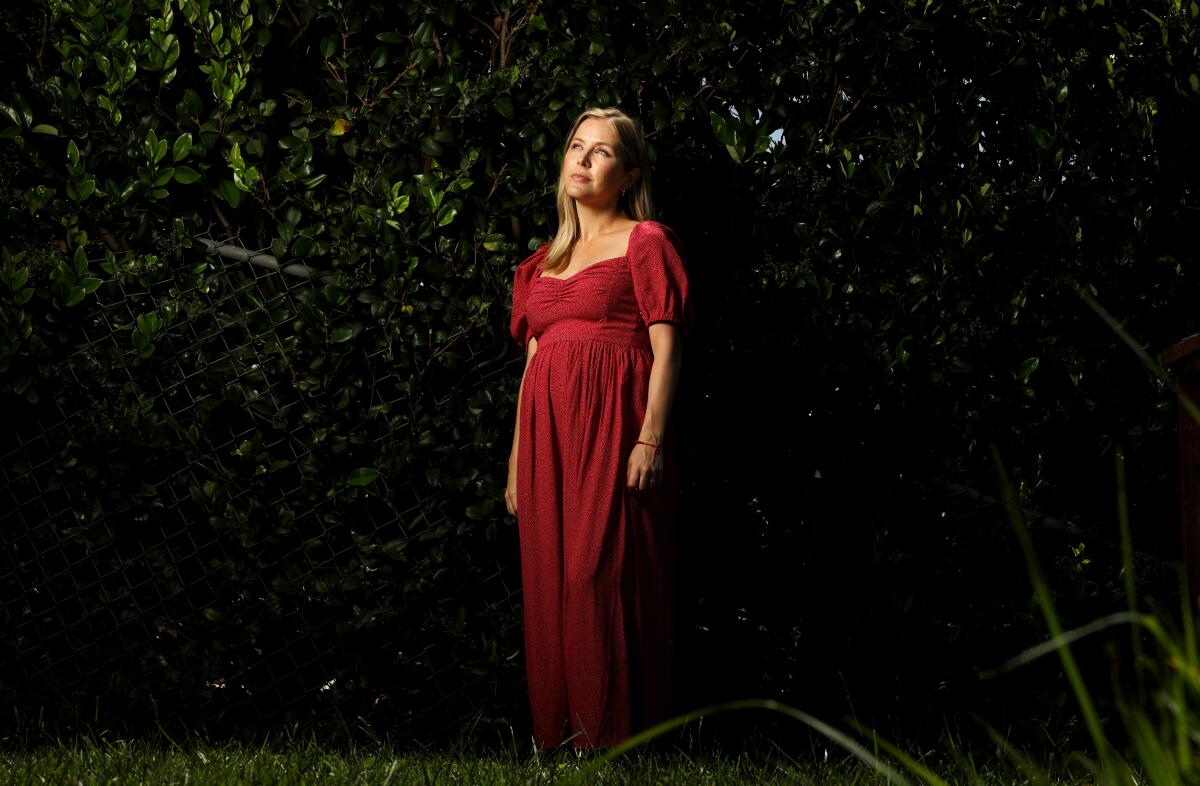
“There was something a little rebellious in working on ‘Stray’” during the tour, she says, “to kind of cheat on that project with a voice that was a lot harder — my nonfiction voice.” Not that it was pleasant exactly. Writing “Sweetbitter” had been fun; to get in the mood she would “throw on LCD Soundsystem and be like, ‘Oh, cocaine is awesome. Being young is so liberating.’” “Stray,” in contrast, lanced and drained her. The prospect of making her traumatic childhood public felt like “losing a large part of my identity.”
Danler wrote the first draft in two months at a residency in Spain. “There were very famous writers sitting around, and I’m just, with my box of tissues —” she pantomimes gasping sobs, then bursts into laughter. She is not a sentimentalist or a cradler of her pain. She examines it, unflinching, writing at one point, “My grandmother was the first person to confirm my vague feeling that I had a power: I could separate from my sadness. Alchemize it.”
The early gestation of “Stray” appeared in the Sewanee Review, edited by Adam Ross. He and Danler had met at a Knopf party right before “Sweetbitter” came out. Ross, who’d had his own celebrated debut, “Mr. Peanut,” in 2010, warned her how hard it could be to fan the flames of publicity while writing something new.
He’d soon learn firsthand about Danler’s prodigious work ethic, honed during her restaurant days. Ross found the first draft of “Stray” “inspiring … it was dripping with amniotic fluid, but there was a baby in there.” Already present was “an absolute fearlessness about dwelling in the gray areas of life.”
The book opens with Danler back in Southern California, equally repelled and magnetized. She lives in a Laurel Canyon cottage that Fleetwood Mac may or may not have lived in. (It’s an unspoken rule: Your first L.A. apartment must harbor at least one celebrity ghost, unconfirmed.) While she’s anticipating the publication of her first novel, her family and her love life implode.
Danler’s sister, Christina Mannatt Strauss, helped her summon up and gut-check memories and impressions. “We were talking almost every day,” Strauss recalls. “We would be texting about one topic and then hop on the phone and then just fully relive it together.” Though they didn’t share every memory — the two were split up when Danler was 16 and sent to live with her father in Colorado —Strauss affirms Danler’s experience, as well as the fact that they’d kept their mother’s drinking a secret from the rest of the family.
Inextricably tied to these familial complications in “Stray” are Danler’s romantic struggles — first with a married man she can’t shake, known as the Monster, and then with the Love Interest, a.k.a. Matt, who would become her husband. As she falls for him in a slow, steady way that she questions for its lack of drama, they road-trip and camp around the state. The lapsed Californian falls back in love with the West, especially the ruinous, arid parts — Death Valley, Joshua Tree, the Salton Sea — seeing them afresh through Matt’s “desert eyes.” As he explains in the book, of Joshua Tree: “When I first get here, all I can see is the brown. Then after a day or two, I get my eyes and the nuances come. The faded colors, wildlife, all the flora.”
By the end of “Stray,” Danler has learned to “take care of myself: I stopped losing my jewelry, wallets, cell phones. I had health insurance (most of the time), paid my taxes on time (most of the time.)” Not only is she becoming her own parent, she’s a parent-to-be. And now that “Stray” is out in the world, the author has finally laid claim to her biggest secret: her story of origin. No performances, other than the ones used to craft a story with a beginning, middle and end. Just her feelings on the surface, in something as intricate as lace but much more durable.
“Initially, I was just so ashamed that I had written all this down, that it would be the record of these deeply complicated, very sad people that I have no ill will towards.” Her parents are both still alive, and Danler’s relationships with them are fraught, to say the least. And yet she doesn’t feel the shame so acutely anymore: “I’m growing more and more proud of the book every day.”
Wappler is a writer in Los Angeles.
More to Read
Sign up for our Book Club newsletter
Get the latest news, events and more from the Los Angeles Times Book Club, and help us get L.A. reading and talking.
You may occasionally receive promotional content from the Los Angeles Times.
